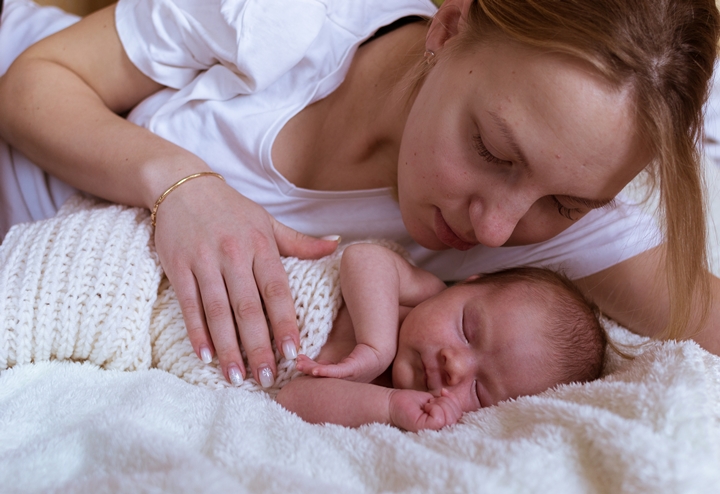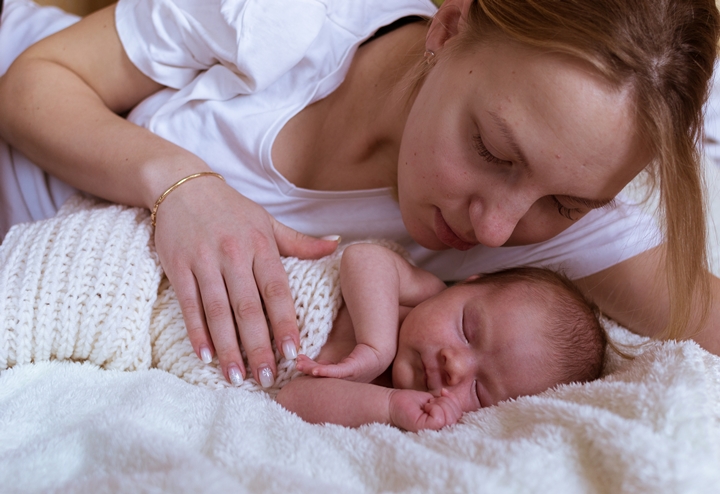
Many new parents decide to bed-share with their baby. This is very common and can make things easier when it comes to night-time feedings, but that doesn’t mean it isn’t without risk. This article is going to look at how you can ensure safe co-sleeping with your baby.
If you smoke
Whether you smoke in the bedroom or not, if you or your partner smokes, this could increase the risk of SIDS (Sudden Infant Death Syndrome). These types of deaths are normally unexplained and happen during sleep for those under the age of one years old.
If you have drunk alcohol or taken drugs
If you or your partner have taken drugs or drunk alcohol, then this could also increase the risk of SIDS, but more importantly, during your sleep, you will be less aware of your baby and therefore may not hear them crying. There are also additional risks; such as rolling over and crushing or suffocating your baby in your sleep.
Premature or low birth weight babies
Babies born early or with a birth weight of less than 2.5kg are likely to be at an increased risk of SIDS. For the first 6 months of your baby’s life, it is often advised that they sleep in a separate cot or Moses basket in the same room as you instead of in the bed, this is particularly relevant should your baby be premature or of a low birth weight.
_______________
Read More:
5 Newborn Sleep Facts Every New Parent Should Know
How to Create a Cozy & Safe Nursery for Your Newborn Baby
How to Help Your Newborn Baby Sleep Well
_______________
Invest in a firm mattress
To ensure safe co-sleeping with baby, invest in a firm mattress to minimise the risk of suffocation. A softer mattress could also increase the risk of your baby overheating. Instead, you want to make sure that it is a snug fit in your bed with no gaps between the mattress and the bed frame, or the bed and the wall, depending on the positioning of your bed. Any cracks or crevices could be dangerous, resulting in your baby becoming trapped.
Minimise your bedding
Minimising your bedding is a great tip for safe co-sleeping with baby. You want to keep pillows and bulky bedding away from your baby’s head to ensure they’re not at risk of suffocation. Professionals advise that light sheets and blankets are a better solution than a duvet.
Never leave your baby alone
If your baby is sleeping in your bed with you, never leave them alone. Even if you leave them for two minutes, there are a lot of risks, including; your baby wriggling around resulting in them getting stuck or falling off the edge of the bed. Make sure your partner is always with them, and if neither of you are able to keep an eye on baby, then put them in a cot or Moses basket as a precaution.
Sleep in the ‘C’ position
In order to manage safe co-sleeping with baby, it’s important that you take note of the position you’re sleeping in. Sleeping in the ‘C’ position with your body facing your baby, your legs curled under them and your arm out above their head, you’ll make sure that you don’t accidentally roll on top of them and that they don’t get smothered by any pillows or bedding.
Resources:
https://www.lullabytrust.org.uk/safer-sleep-advice/co-sleeping/
https://www.babycentre.co.uk/a558334/co-sleeping-and-safety
http://www.mayoclinic.org/diseases-conditions/sudden-infant-death-syndrome/home/ovc-20322699
The Complete Guide to Sleep Regression – https://www.moshisleep.com/sleep-regression/


